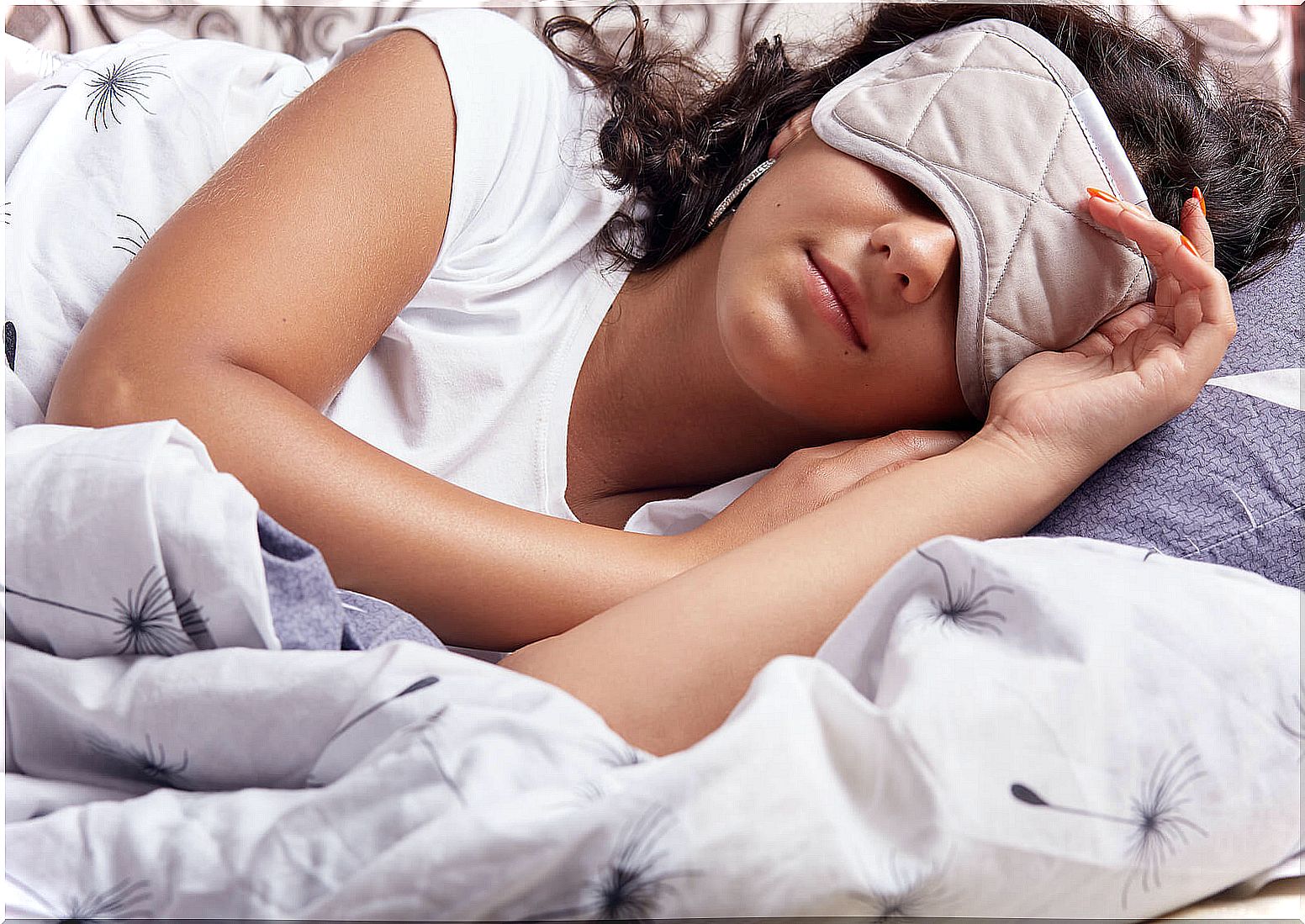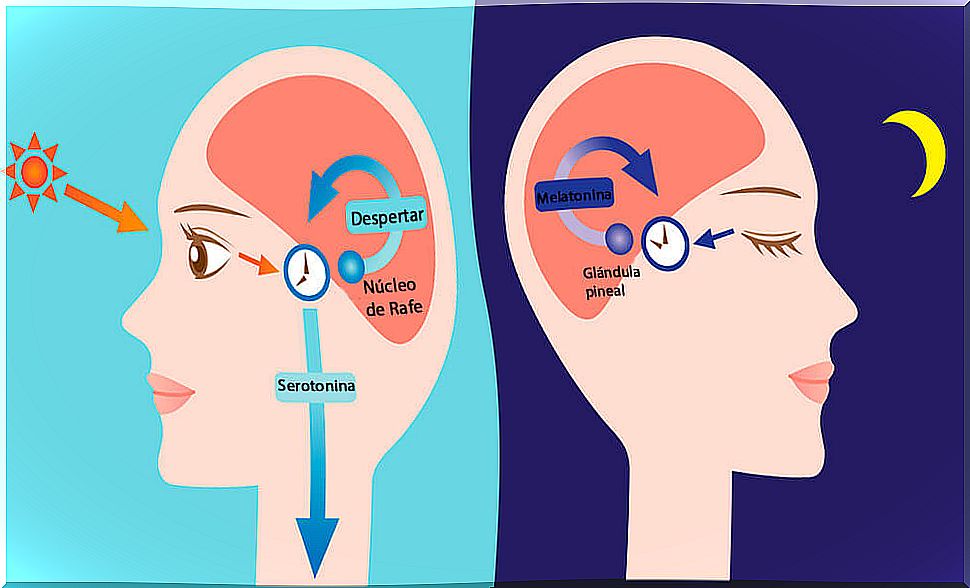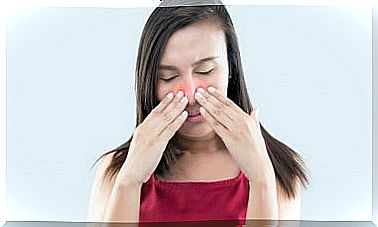How To Regulate Melatonin And Sleep Better
The darkness sends the signal to our brain that it is time to sleep, it is advisable to avoid light stimuli, such as television or mobile phones, before going to bed.

Melatonin is the hormone responsible for regulating many biological functions (including the process of sleep and wakefulness). It is one of the main hormones that we need to regulate in order to sleep properly. That is why it is essential to keep it balanced if we want to rest well and avoid some common disorders such as insomnia.
In this article we will tell you how to achieve it.
What to know about melatonin?
Melatonin performs many specific functions, such as regulating the sleep cycle. It is produced in the pineal gland of the brain at night. At that time, among other things, it performs the following functions:
- Balances heart rate and blood pressure.
- It facilitates the propensity to sleep by regulating the circadian rhythm.
- Participates in the release of free radicals.
- It acts on the retinal functions.

It is distributed throughout the body and synchronizes circadian rhythms. Thus, when melatonin levels are normal, we can sleep and rest properly.
The main problem with this hormone is that when we are stressed and poorly fed, we are too sedentary or we expose ourselves to excessive artificial light at night, its levels drop. The result? Insomnia appears.
In addition, melatonin stimulates the production of growth hormone and repair of tissues and muscles. This is the reason why when we are little we need more sleep than when we are adults. Also if we are sick or have trained too much in the gym, the body “asks” for more hours of sleep.
As if all this was not enough, it also fulfills these functions:
- Regulates the appetite.
- It is a powerful antioxidant.
- It is involved in the development and function of the testicles and ovaries.
- Improves the immune system by inhibiting the action of certain viruses and bacteria.
Hormones important for sleep

Melatonin and serotonin
We could say that these are “contrary” hormones but that they act together and that is why we need both to normalize.
Just as melatonin is stimulated by darkness, serotonin is stimulated by light. The retinas capture sunlight and it reaches the pineal gland. At that point it stops the production of melatonin and begins with the production of serotonin.
Quite the opposite happens when we are in the dark.
It is necessary to know that artificial light cannot replace the function of sunlight. This may explain, for example, why in winter we feel more like staying in bed or resting (in addition to the cold) and in summer we wake up with other energy and do many activities.
When we do not have enough serotonin in the body, the desire to consume certain caloric or unhealthy foods increases: cookies, sweets, chocolate, ice cream, etc.
A lack of melatonin causes us insomnia and problems sleeping well. In turn, an excess of this hormone can cause drowsiness, listlessness, lack of energy, etc.
Cortisol
We must also name another very “popular” hormone to understand the importance of melatonin and serotonin: cortisol. The latter is known as “the stress hormone” since it is precisely in charge of increasing or decreasing the symptoms derived from it. Likewise, it has a great impact on the processes of sleep and wakefulness.
Some stressed-out people need more sleep, and others can’t “shut eye” all night. This is because cortisol has unbalanced the production of hormones responsible for rest and action.
Foods that stimulate the production of melatonin
The diet is essential for the levels of this hormone to normalize and we can sleep the recommended 7 or 8 hours per night. Above all, it is advisable to consume tropical fruits, such as pineapple, or citrus fruits, such as orange.
We can help the body to produce melatonin if we eat:
- Corn.
- Rice.
- Eggs.
- Fish.
- Vegetables.
- Nuts.
- Oats and barley.
We can also improve melatonin levels by adding to our diet:
- Tuna.
- Tomato.
- Potatoes.
- Dairy products.
- Foods rich in polyphenols.

Habits to regulate melatonin
In addition to eating a balanced and healthy diet, we recommend some habits that can be used to balance the levels of this hormone.
1. Sleep in a dark room
The room should have blinds or curtains that prevent the entry of light from outside. Even the ones on the street. The semi-darkness gives the order to the brain that “it is time to sleep.” A dark room guarantees a more pleasant and restful sleep.
Note If you can’t make the room dark, try wearing an eye mask.
2. Do not watch television before sleeping
In addition to the lights that this device emits, we must bear in mind that certain scenes, sounds or news “wake up” the mind and do not allow it to enter the resting stage so easily.
That is why it would be good if you did not have a television in your room. The same is applicable for mobile devices. Use them no more than an hour before going to bed.
3. Don’t exercise at night
Exercise is very good for your health and no one can deny it. However, when it is practiced at night (specifically, three, two or an hour before going to bed) the body and mind are in “alert” mode. longer and you may find it hard to fall asleep.
So in the morning it will be difficult for you to get up because the body did not have time to repair the damage caused by exercise. That is why it is better that physical activity ends at sunset.
Here we have explained how sleep works and how important it is. Therefore, we hope that you follow our advice and that you get a good rest. And if you can’t remedy the lack of sleep, consult a specialist in the matter.









